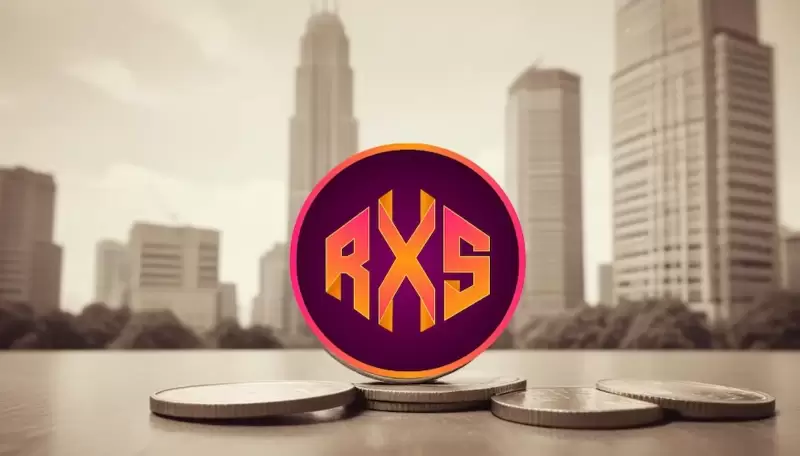 |
|
 |
|
 |
|
 |
|
 |
|
 |
|
 |
|
 |
|
 |
|
 |
|
 |
|
 |
|
 |
|
 |
|
 |
|
Cryptocurrency News Articles
The New Meaning of “Bucks” in the Digital Age: What You Need to Know
Feb 23, 2025 at 04:30 pm
The term “bucks,” long synonymous with dollars, is evolving partly due to the emergence of cryptocurrencies like Bitcoin and Ethereum.

In an era where financial technologies are rapidly evolving, the term “bucks” is undergoing a fascinating transformation. Traditionally, the word “bucks” has been a casual synonym for dollars, deeply ingrained in the English vernacular. However, as digital currencies and financial technologies advance, “bucks” might take on new meanings.
Emerging cryptocurrencies and financial platforms are redefining our understanding of money. With the rise of Bitcoin, Ethereum, and stablecoins, the traditional use of “bucks” to solely denote physical or fiat currency is gradually expanding to include digital currencies. As “bucks” may soon represent value in a decentralized, blockchain-based future, this linguistic evolution mirrors pivotal changes in our economy.
The advent of cashless societies introduces another dynamic to the term “bucks.” Platforms like PayPal, Venmo, and emerging digital wallets are rapidly reducing the need for physical cash. In this context, “bucks” could symbolize virtual credits or digital balances rather than paper money. As financial transactions increasingly happen on screens rather than at counters, language adapts, reflecting new technologies and financial habits.
Ultimately, as we embrace a more digitally-driven world, the modern lexicon—including the term “bucks”—evolves with it, projecting a vocabulary fit for a cashless and virtual economy. The future of “bucks” may redefine traditional economic interactions, signaling an exciting era where language aligns closely with innovation.
The New Meaning of “Bucks” in the Digital Age: What You Need to Know
How are Cryptocurrencies Changing the Definition of “Bucks”?
The term “bucks,” long synonymous with dollars, is evolving partly due to the emergence of cryptocurrencies like Bitcoin and Ethereum. These digital currencies are decentralized, meaning they operate independently of a central bank, transforming the way we perceive currency. “Bucks” now also represents value found in these blockchain-based assets, heralding a future where language and financial systems are more aligned with technology.
For more information, explore Coinbase to understand how these platforms contribute to this linguistic evolution.
How Do Cashless Societies Impact the Use of “Bucks”?
Cashless societies driven by platforms such as PayPal and Venmo introduce a new perspective on “bucks,” transitioning its meaning to include virtual credits or digital balances. As physical cash becomes less prevalent in daily transactions, “bucks” might increasingly be used to denote these digital balances.
For further insights, visit PayPal to see how these systems are changing financial behavior.
What Are the Advantages and Disadvantages of Moving Away from Physical “Bucks”?
Advantages:
– Convenience: Digital transactions are quick and efficient.
– Security: Reduces the risk associated with carrying cash.
– Tracking: Easier to track spending and manage budgets.
Disadvantages:
– Privacy Concerns: Digital transactions can be tracked more easily than cash.
– Technology Dependence: Requires reliable tech and internet access.
For more on balancing these pros and cons, check Venmo to understand how users are tackling these issues.
Final Thoughts
As we pivot towards a more digitized financial landscape, the vocabulary we use undergoes a transformation, too. The term “bucks” is expanding beyond its traditional confines, reflecting more profound shifts in our economic structures. As financial technologies continue to advance, staying informed about these changes keeps us better prepared for the future.
Disclaimer:info@kdj.com
The information provided is not trading advice. kdj.com does not assume any responsibility for any investments made based on the information provided in this article. Cryptocurrencies are highly volatile and it is highly recommended that you invest with caution after thorough research!
If you believe that the content used on this website infringes your copyright, please contact us immediately (info@kdj.com) and we will delete it promptly.
-

-

-

-

-

-

-

- Brazil Greenlights the World's First XRP ETF, the DTX Exchange Token Surges More Than 800%
- Feb 23, 2025 at 11:10 pm
- With its upcoming listing poised to capitalize on shifting investor strategies, this $0.18 altcoin emerges as a focal point for traders balancing short-term pressures with long-term potential.
-

- Rexas Finance (RXS) Token Presale: A Revolutionary RWA Tokenization Platform Poised to Lead the Altcoin Season of 2025
- Feb 23, 2025 at 11:00 pm
- As Ethereum shows a super bullish setup, signaling the potential beginning of an altcoin season, Rexas Finance is transforming DeFi through a safe method of real-world asset tokenization
-


























































